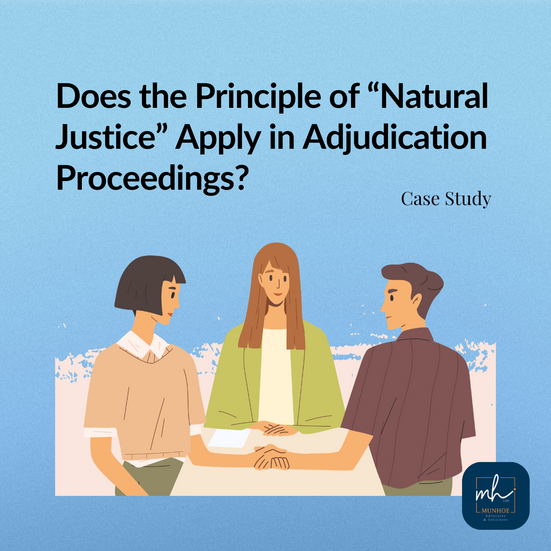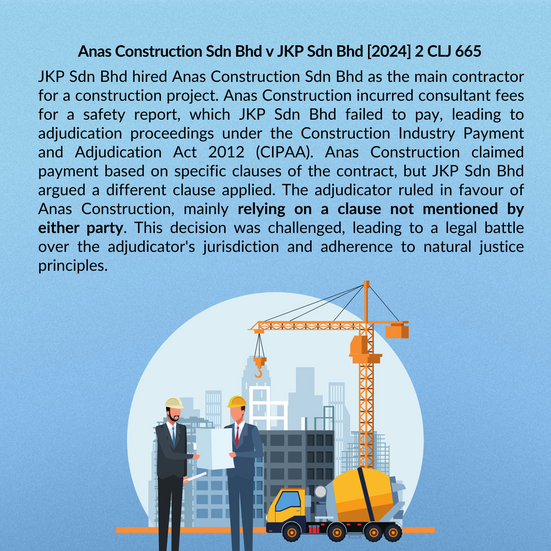Does the Principle of “Natural Justice” Apply in Adjudication Proceedings?
- brandonwong528
- Mar 20, 2024
- 2 min read
by MH Law | March 20, 2024 | Legal Insights
________________________________________________________
Do the strict rules of pleadings extend beyond traditional court proceedings to encompass adjudication proceedings?
Strict rules of pleadings refer to the formalised procedures for presenting the case before a court or tribunal. These rules govern how parties frame their arguments, present evidence, and respond to each other's claims. While adjudication proceedings may not always have the same level of formality as court proceedings, they often have their own set of rules and procedures to ensure an orderly and fair resolution of disputes. However, these rules may not be as rigid or formalised as those in traditional court proceedings.
In many adjudication proceedings, especially those related to specialised fields such as construction contracts or administrative law, there may be specific rules or guidelines governing the process. These rules could include requirements for the submission of written statements, the exchange of evidence, and the opportunity for parties to respond to each other's arguments.
________________________________________________________
Anas Construction Sdn Bhd v JKP Sdn Bhd [2024] 2 CLJ 665
JKP Sdn Bhd hired Anas Construction Sdn Bhd as the main contractor for a construction project. Anas Construction incurred consultant fees for a safety report, which JKP Sdn Bhd failed to pay, leading to adjudication proceedings under the Construction Industry Payment and Adjudication Act 2012 (CIPAA). Anas Construction claimed payment based on specific clauses of the contract, but JKP Sdn Bhd argued a different clause applied. The adjudicator ruled in favour of Anas Construction, mainly relying on a clause not mentioned by either party. This decision was challenged, leading to a legal battle over the adjudicator's jurisdiction and adherence to natural justice principles.
________________________________________________________
Federal Court’s Findings
The majority decision from the Federal Court focused on two main issues: excess of jurisdiction and denial of natural justice.
The Court emphasised that the adjudicator's authority is limited to matters referred to by the parties in the adjudication process under CIPAA 2012. If the adjudicator considers a provision not mentioned by the parties without allowing them to address it, it exceeds jurisdiction. Additionally, parties must have a fair opportunity to address all relevant issues during the adjudication process. Failure to provide parties with the chance to respond to specific provisions considered by the adjudicator amounts to a denial of natural justice. As a result, the adjudicator's decision was set aside.
________________________________________________________
Key Takeaways
The ruling by the Federal Court is expected to introduce stringent pleading regulations into statutory adjudication proceedings. If an adjudicator bases their decision on a provision not explicitly mentioned in a payment claim, it could be invalidated due to the adjudicator exceeding their authority.
This decision implies that parties involved in adjudication proceedings must ensure that all relevant legal claims and clauses are specifically mentioned and pleaded in their submissions. Failure to do so may result in adjudicators exceeding their jurisdiction and their decisions being subject to challenge and potential overturning by the courts.
Have a question? Please contact us at info@munhoelaw.com

















